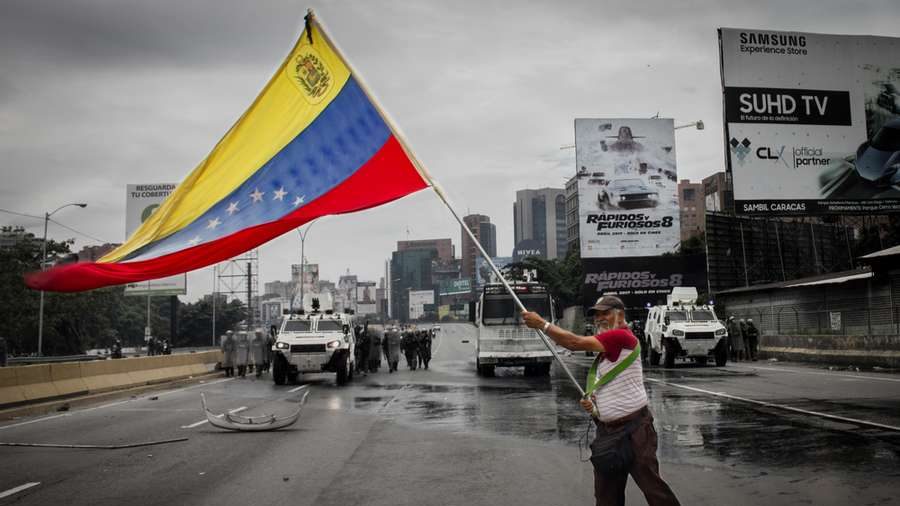An archbishop in Venezuela warned that desperation is growing in the country, as the national coronavirus quarantine measures have compounded a tenuous political and economic situation. He urged people in the country to resist violence and social unrest.
Extreme hunger “does not reason or know rules,” said Archbishop Ulises Gutiérrez of Ciudad Bolívar, adding that this desperate hunger “is becoming a fuel more dangerous than gasoline.”
Gutiérrez spoke with ACI Prensa, CNA’s Spanish language news partner, in an April 23 interview, after looting and protests broke out in seven states in Venezuela.
Protestors objected to price hikes on food and a gasoline shortage exacerbated by the ongoing quarantine that was imposed last month to halt the spread of the COVID-19 pandemic. According to the latest government report, there have been 298 cases and 10 deaths in the country due to the virus.
Even before the coronavirus pandemic, Venezuela has been marred by violence and social upheaval under the socialist administration of Nicolas Maduro, with severe shortages of food and medicine, high unemployment, power outages, and hyperinflation. Some 4.5 million Venezuelans have emigrated since 2015.
The current COVID-19 quarantine is “aggravating the situation,” the archbishop said, noting that the quarantine was implemented without accompanying measures to protect the most vulnerable.
As a result, families are suffering, and many cannot access clean water, electricity or gasoline.
The country is experiencing “a totally destroyed economy in which agricultural producers can’t get their products out because they’re not getting gasoline supplied to them, or they have to buy it on the black market for 2 or 3 dollars a liter,” he said. In some cases, crops are rotting in farmers’ fields due to lack of fuel to transport them to market.
Gutiérrez voiced concern over the hunger-fueled looting and protests throughout the country, as well as the government’s violent suppression of the protests.
“The common denominator in all these protests is hunger,” he stressed.
With equipment in short supply and many of the country’s doctors have already emigrated due to the political and economic crisis, Gutiérrez acknowledged, the pandemic poses a significant threat.
“In short, the outlook is very dark,” he said.
But despite the desperate situation, the archbishop urged people not to resort to looting and violence.
“[S]atisfying hunger short term [by committing robbery] only leads to the destruction of regular commerce,” he said.
“The situation we’re going through is very tough, difficult, and fragile,” Gutiérrez said, likening the conditions to a pressure cooker, “which could lead us to unprecedented explosive social unrest, which nobody wants, and which would bring with it more hunger and greater suffering for the people.”
Still, the archbishop said he has reason for hope: “Our trust is in God and his providence keeps us going, encouraging and accompanying our people, assisting them with our Caritas social programs.”
“We have community soup kitchens, a medicine bank, outpatient medical care, programs for infant nutrition and nursing mothers, etc., which although it’s impossible to reach everyone, is a sign of God’s love through the Church,” he said.

